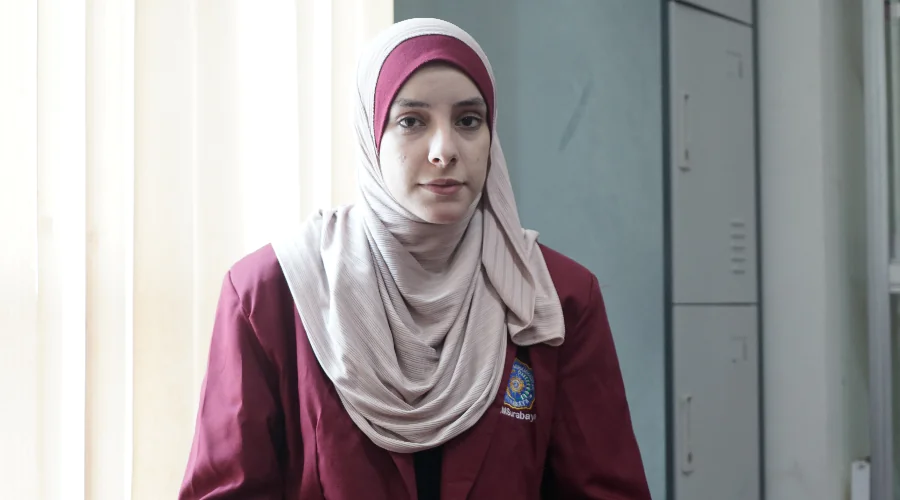
- 02 Feb
- 2022
Foto Vella Rohmayani peneliti UM Surabaya sekaligus dosen prodi sarjana terapan teknologi laboratorium medis FIK UM Surabaya (Dok:pribadi)
UM Surabaya Researcher: Protozoa in Cat Feces Can Cause Diarrhea and Death
One of the animals that host protozoa is the cat. Cats can be infected with protozoa parasites by eating leftover food that is in the trash or other dirty places.
Vella Rohmayani, researcher and lecturer at the Bachelor of Applied Technology Medical Laboratory Technology FIK UM Surabaya revealed that in research conducted by him and his team in early 2022 in Surabaya, it was stated that there were 4 types of protozoa that were found in cat feces, namely Eimeria spp, Isospora spp, Balantidium sp and Giardia sp.
Vella explained that protozoa are unicellular eukaryotic organisms, so protozoa are often referred to as the first animals. Even though protozoa consist of only one cell or are unicellular, protozoa already have a cell nucleus membrane and their structure and cell components are more complex when compared to prokaryotic organisms.
"In general, based on their means of locomotion, Protozoa can be divided into 4 namely, Rhizopoda, Cilliata, Flagellata and Sporozoa. Protozoa are generally free-living in nature. Protozoa have a habitat in water or in an environment that tends to be humid or wet. Some protozoa that are pathogenic, live in the body of the host or its hosts. As for the host protozoa are algae, invertebrates to humans," said Vella Wednesday (2/2/22)
Furthermore, Vella explained that pathogenic protozoa found in cat feces can be transmitted to humans. This transmission can occur because cats have a habit of defecating on the ground. Protozoa will come out along with the feces excreted by cats infected with the parasite.
“That is what then causes the transmission of protozoa parasite infections through the soil. So that there will be transmission when someone makes direct contact with soil contaminated by cystic or infective protozoa," added Vella.
At the end of his presentation, Vella also emphasized that transmission can also occur when someone accidentally ingests protozoa parasites from food contaminated with cat feces, and so on.
"The dangers that can be caused if someone is infected by protozoa types Eimeria spp and Isospora spp are diarrhea, dehydration, anemia, loss of appetite and even death. Infection with protozoa of the Balantidium sp species can lead to balantidiasis. While infections caused by Giardia sp can cause giardiasis or diarrhea. Diarrhea caused can be in the form of ordinary diarrhea to diarrhea containing blood, "said Vella.
From the research he conducted, he advised to maintain environmental sanitation from cat feces contamination. The government also needs to make efforts to raise public awareness regarding the dangers of disease from cats, and needs to establish more cat breeding places, so that wild cats can live well-maintained. So that it can minimize cases of protozoa infection that is transmitted through cat feces.










(0) Comments